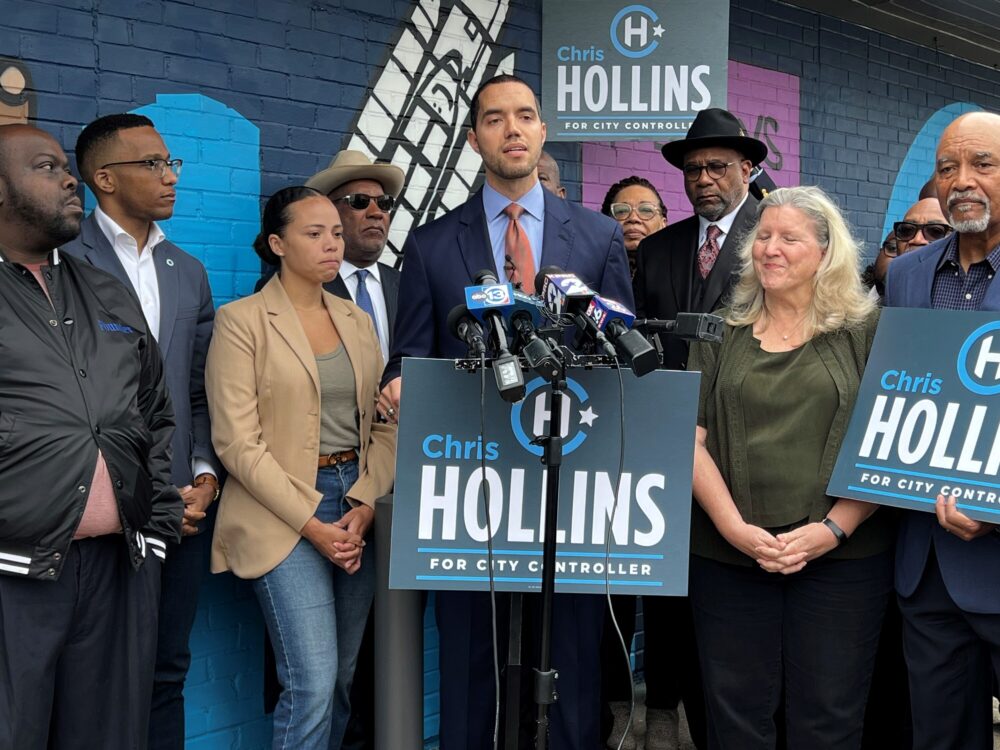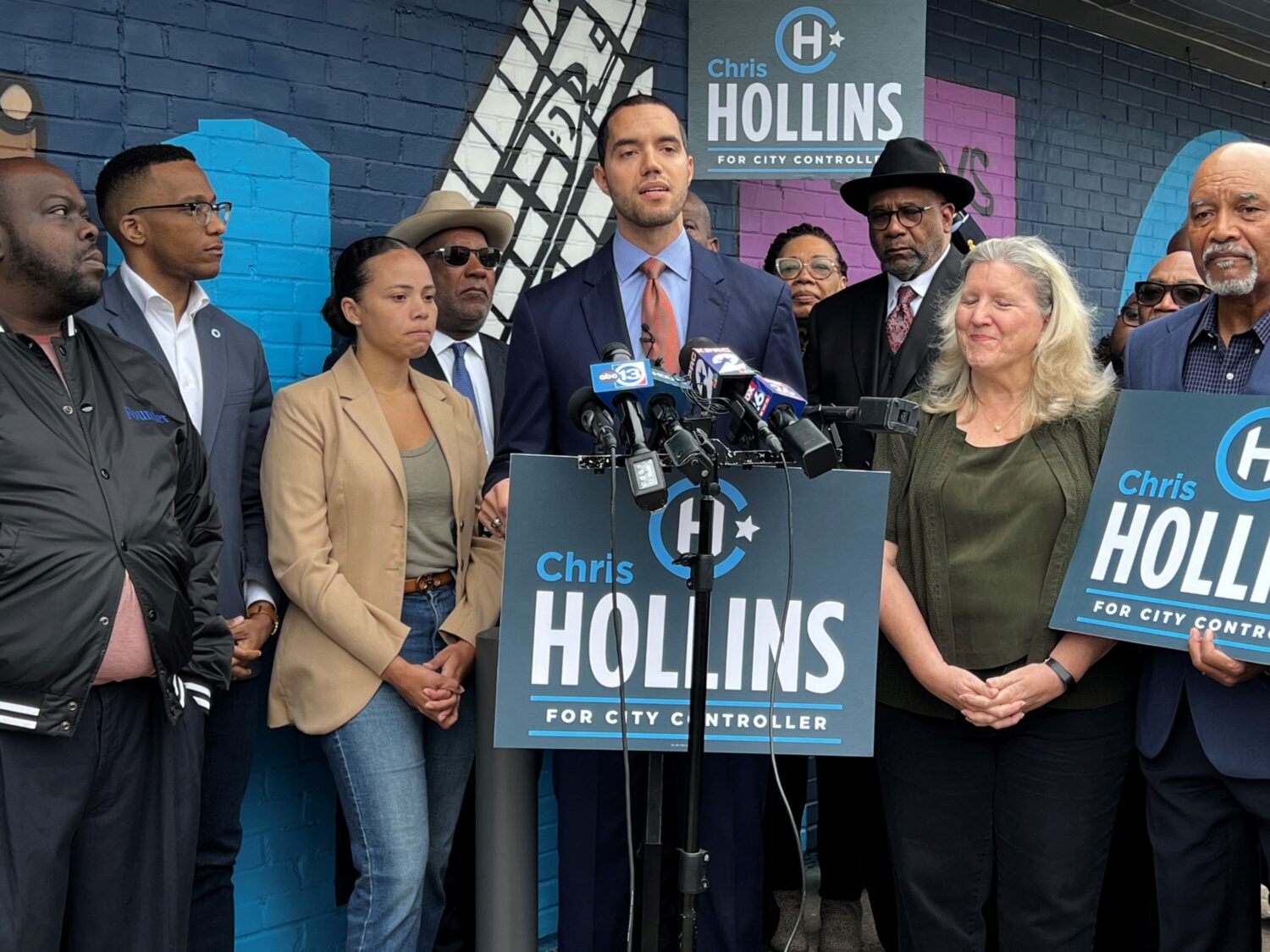
As the election approaches in Houston, Houston Matters with Craig Cohen offers listeners the opportunity to speak directly with the candidates. For the series, Cohen’s first choice was Chris Hollins, a former Harris County clerk running for Houston comptroller.
As comptroller, the elected official acts as the city’s chief financial officer. Responsibilities include: verifying the availability of funds prior to City Council approval of City obligations, processing and monitoring payments in excess of $1 billion annually, investing City funds, conducting internal audits of City departments and federal grant programs, and operating and maintaining the financial management system. conducting the sale of bonds for government improvements and revenues, and preparing an annual comprehensive financial report.
Hollins is currently facing three other candidates: Houston City Councilman Dave Martin, former councilman and Harris County Treasurer Orlando Sanchez and current Deputy City Comptroller Shannon Nobles. They are all running to replace retiring City Comptroller Chris Brown, who is term-limited.
Hollins grew up in southwest Houston and was raised by his father, a police officer, and his mother, an administrative assistant. Hollins graduated from Yale Law School and holds an MBA from Harvard University. Hollins is the first African American and youngest person ever to serve as Harris County Clerk. He spent most of his career as a management consultant, working to transform the way government agencies operate to better serve the people they are designed to serve. Hollins also helped organize drive-thru and 24-hour voting during past elections.
This interview has been edited for length and clarity. Questions from Houston Matters will appear in bold. The full interview can be found in the audio above.
HM: What experience have you had that you feel relates specifically to work related to auditing, investing, financial reporting and forecasting; Essentially accounting?
Accounting is one part of the job. But look, as a consultant, I’ve worked on creating multi-billion dollar budgets for government agencies. I have also worked with multinational audit firms to make large government programs more auditable. So, you need to be good with numbers, but you don’t have to be a CPA. Actually, no one in this entire race is a CPA, but you have to be able to understand the math. I also, you know, have an MBA from Harvard Business School with a concentration in finance. As a small business owner, I run my own business and do my own accounting. And it’s a multi-million dollar business. So, you know, we had to be incredibly comfortable with numbers. But the other part beyond the financial audit that’s really important here… is something called a performance audit. The controller not only makes sure that dollars and cents are sent through the pipelines… but we also have to make sure that we are getting value for our money. It comes down to city operations. So, you know what I bring in abundance is experience in successful operations. And when things aren’t going so well, you need to be able to bring in new ideas and best practices to change things for the better.
HM: This work also suggests that sometimes the mayor and city council have to tell the mayor and city council that the city doesn’t have money to spend on something they want to do unless the money comes from something or somewhere else. Are you willing to speak that truth to power, even if it means doing so at the expense of what you really want to achieve from the city?
Absolutely. You know, there are some pretty incredible financial challenges ahead of us. Our current city comptroller was ringing the bell and saying, “Listen, when the federal government runs out of COVID molars in a year, we’ll be facing what many believe is a $250-$300 million hole in our budget.” ‘ And so we will have to solve this problem in one of two ways: either increase revenues or reduce costs. And at a time when many people are struggling financially, the first thing we need to do is find ways to be more efficient. I don’t think that as a first principle we should cut, you know, essential services, critical services for the people of Houston, but we can find ways to provide the same level at a lower cost. But you also have to have a backbone, and we demonstrated that.
HM: As you noted, outgoing Comptroller Chris Brown noted… that the city will face budget challenges in the future. Brown says the city could be in financial crisis if it doesn’t cut spending by up to $300 million. So it’s not necessarily the amount that could be solved, just a little more efficiently. We’re talking about potentially significant employee layoffs, right?
This is a real opportunity. So, you know, I’ve laid out on my website some of the things that we can and should do to both increase revenue and reduce costs from a revenue perspective. I know we are running out of Covid-19 related dollars. But the Biden administration has made unprecedented, you know, multi-trillion-dollar investments in infrastructure across the country. Projects we’re already working on that Houstonians desperately need, like fixing our roads and making sure we have clean water flowing into our taps. And also the Inflation Reduction Act, which is designed to invest in the next generation of energy. And as the City of Houston strives to maintain its position as the energy capital of the world, we are already moving in that direction. So there are hundreds of millions and billions of dollars available for investment in Houston that we are already planning to make for ourselves so that we can go there and get our fair share of those dollars.
HM: The city of Houston is limited in what it can raise from property taxes by a revenue cap that voters approved and added to the city charter back in 2004. As a result, property tax rates have been reduced eight times in the past nine years. to ensure the city remains compliant. Would you like to see this change?
Yes, I am officially in favor of eliminating the income cap. Ultimately, our local officials must be able to solve the problems we have created. And this happens with good resources. We can’t have a laundry list of what this city needs, and what it needs badly, but we can’t have a funding mechanism that can ultimately achieve it. And since we have all lived through the inflation of the last few years, the city is not exempt from these conditions. So, as prices go up, we have to provide the same services that people so desperately need, and it becomes more and more challenging. So first, we should do away with the income cap. But in that sense, in the sense that we can’t do that anytime soon, I’m also in favor of excluding public safety from the revenue cap so that we can pay our police officers the same way we can pay our firefighters without sacrificing everything other important things we need to do as a city.
HM: You were a candidate for mayor of Houston but dropped out of the race in April, shortly after Congresswoman Sheila Jackson Lee entered the race, and you said her participation really influenced your decision. You then announced that you would be running for Comptroller instead. To some, this may give the impression that you are less interested in this elective position and more interested in elective office, and that you may be looking at this job as a stepping stone to something else. Is this a false impression?
I am interested in serving the city of Houston. I love this city. I am now raising two children here in this city with my beloved wife Morgan, and I want them to have more opportunities than I had. I want them to have a better quality of life than I have, and I want our city to continue on the amazing trajectory we’ve been on for several years now. But we have some real problems that we will have to face. There are more guns on our streets than ever before, living in Houston is harder than ever, and these critical financial issues are in the downtown area. And that’s why I want to serve the city of Houston, plain and simple. And the comptroller position makes me very excited because not only do we need that watchdog, but we also need new ideas and a new way of doing business in the city and the comptroller through performance audits. we can bring these ideas to every city department so we can start doing better.
Houston Matters’ next scheduled interview is next Tuesday with Houston mayoral candidate Congresswoman Sheila Jackson Lee.

